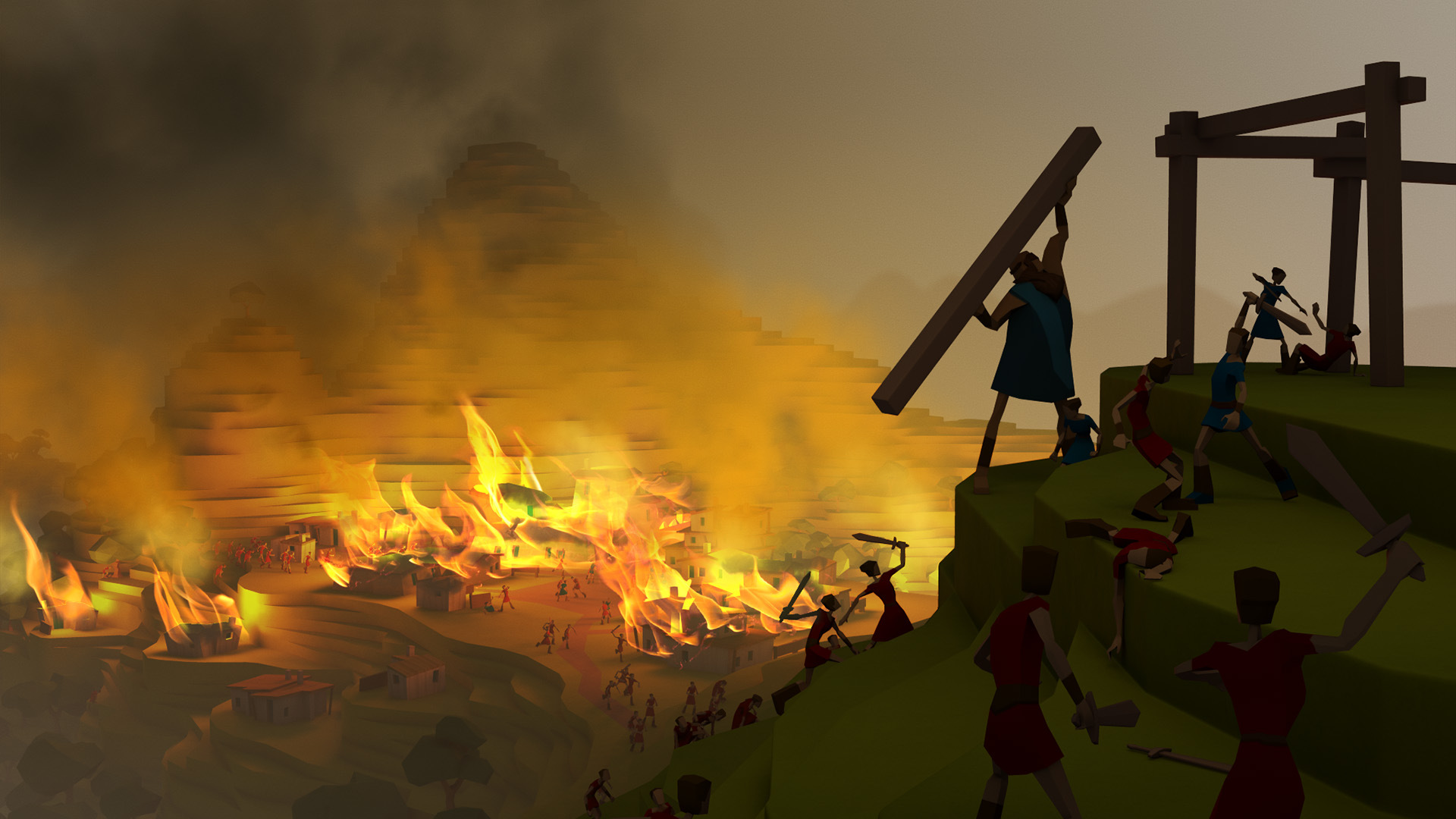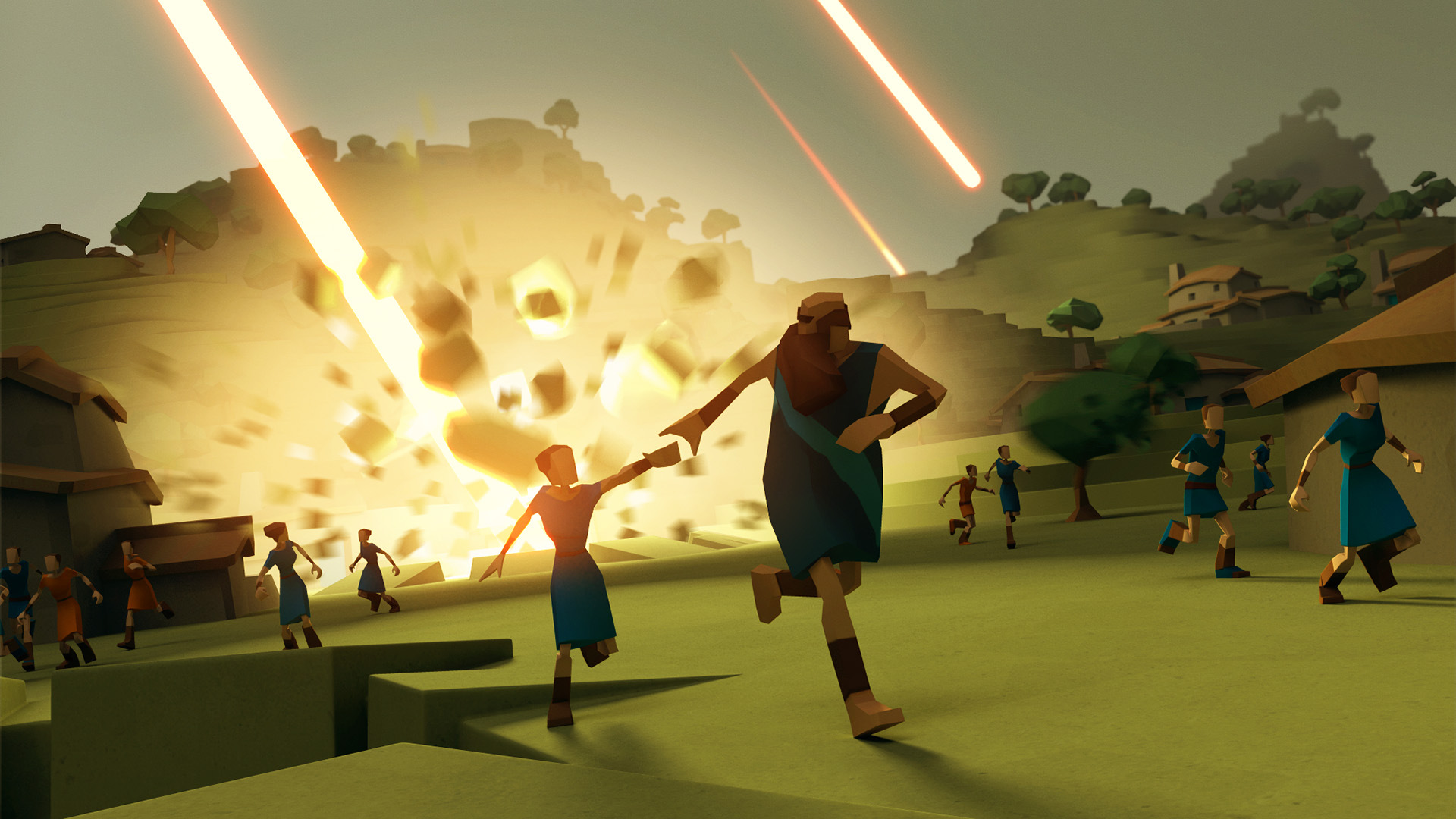Peter Molyneux on what went wrong with Godus - and how to save free-to-play
'I'm very inspired with what's happening on the PC'
Sign up for breaking news, reviews, opinion, top tech deals, and more.
You are now subscribed
Your newsletter sign-up was successful
"These games have got a very simple model. If you look at things like Candy Crush, you pay money if you want to carry on playing, if you feel so obsessive. And I think that's a good thing to stop people just spending endless hours. You pay money for that and you pay money if you're struggling to get past a level. That hasn't really translated into other areas."
"I think it needs to be simple and it needs to be understandable. And the thing I've learned from Godus is that the game and monetization need to be together, they need to be part of the flow of the game. It needs to be feel not like a requirement, like a gate."

We need to talk about PC
The thing is (as Peter points out) these free-to-play Facebook-y type games, which have infested our mobiles, are based on a model that pre-dates smartphone gaming entirely. The difference is how that model is being exploited.
Take Hearthstone, a game in which you can never spend a dime and you'll never feel punished for it. Sure, in-game purchases will help you build that extravagant deck even faster, but you can comfortably earn it without opening your wallet if you're willing to put in a bit of extra time and effort. To put it more simply, it never feels pay-to-win.
"The model I'm absolutely fascinated with, and we don't talk nearly enough about this - the press doesn't talk enough about it, and I don't think the gaming community do - is the PC," says Peter. "It's Team Fortress 2, and League of Legends 2, and Dota. They're all quietly going on and refining their model in a much more interesting and a much more mature way.
"I think we're not talking about it because there's not the data in your face like there is here [on phones]. I don't think they need the press, they don't need to talk about their numbers, so we don't see it so much. In places like Korea and Taiwan, PC gaming is massive… that's totally invisible to us. I'm very inspired by what's happening in those markets that have been using free to play, or the equivalent of free to play, for many many years, many more years than free to play has been on phones. And if you look at that stuff, it seems fairer, it seems more interesting, it seems more integrated with the game itself."

Peter Molyneux is a passionate man. And while he's earned an unfortunate reputation of over-promising and under-delivering, no one could ever accuse Peter of not loving what he does. With Curiosity: What's inside the cube? Peter proved that thousands of people would happily tap away at a screen to pursue an invisible prize, but with Godus, he explains, he was also out to prove something to himself.
Sign up for breaking news, reviews, opinion, top tech deals, and more.
"I proved to myself that making the transition from console to mobile is possible, but it's very, very difficult. It's not just about an idea, and thinking 'OK I'm going to be dealing with a new audience of people, and I'm going to be dealing with a new audience of people that want to use their phones to relax more than they want to use it to be excited'. It's far more complex than that because there are so many skills that you have to learn from the base up."
If you head over to Peter's 22Cans site right now and click on 'about us', you'll see the following message:
"Peter's dream was to hand-craft a team of the 22 most talented, passionate and creative individuals with which to make the defining games of his career.
22 Cans create games for the world, and the journey has only just begun."
Indeed, it feels like Molyneux is far from done. He'll take his lessons from Godus with him to his next mobile game, The Trail - "I think the next IP is an interesting step" - but we can't help but ask him if through the trials and tribulations of Godus, there was ever a moment he longed to be back on the lavish green pastures of Microsoft.
"I had a fantastic time there. I'm not sure it was the most sensible thing for me to do to leave in terms of life. I had a very comfortable existence there, a very defined existence, I knew what tomorrow would be. And I left the luxury cruiseliner to get into the lifeboat with a big hole in the side. Creatively speaking, I'm at my most creative when I'm most in peril. Necessity is the mother of creativity, it's being forced to do something. If you don't create now you're going to sink.
Then you tend to come up with better ideas."

Hugh Langley is the ex-News Editor of TechRadar. He had written for many magazines and websites including Business Insider, The Telegraph, IGN, Gizmodo, Entrepreneur Magazine, WIRED (UK), TrustedReviews, Business Insider Australia, Business Insider India, Business Insider Singapore, Wareable, The Ambient and more.
Hugh is now a correspondent at Business Insider covering Google and Alphabet, and has the unfortunate distinction of accidentally linking the TechRadar homepage to a rival publication.